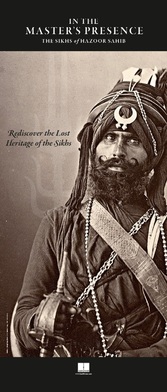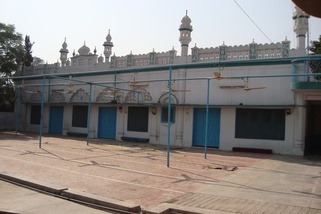AFGHAN LODHI*
Nawab Khan Jehan lodhi was in one of our forefathers, who was the Nawab of Burhan pur Daccan INDIA since 1612-1631. He was the chief of army staff of Mughal king Shah Jehan. After his death since 1631 his son Hassan khan lodhi was escaped from the Mughal army and then he arrived to Surath. And he was live with British's. Nawab Hassan khan lodhi son was in the British's army. And he was died in the war of Haider abad Daccan INDIA so, the Queen Marry 2nd 1689-1694 was submited him the honesty and bravery certificate to his wife. And that certificate I have in home. I have all records of my forefathers since 1947 to the British government.
After the death of Nawab Shadi khan lodhi, his two sons Nawab Abdul Rahim khan & Abdul karim khan lodhi took part in the 4th battle of Pani Path with Afghan king Ahmad shah Abdali 24th Jan 1761. They defeated the Marhat’s Army.
After this glorious victory, Nawab Abdul Rahim khan lodhi settle down at Baghdada mardan & Nawab Abdul karim khan lodhi at Topi Sawabi (NWFP). This family passed through many stages from the British occupations of Mardan in 1849 till the portions of India in 1947.
They played a key role and it is preserved in the record. My parents belong to this family.
ARRIVAL OF AFGHAN LODHI IN MARDAN
Nawab of burhanpur Daccan , Nawab Khan Jehan Lodhi (1612-1631) had been one of the forefather of Nawab Abdur Rahim Khan Jehan Lodhi S/O Nawab Maj. Shadi Khan Lodhi who migrated to Mardan after the 4th battle of Pani Path in 1761 AD.
When the Britain's occupied Mardan in 1849 A.D., Nawab Ashad Ali Khan Lodhi S/O Nawab Abdurahim Khan Jehan Lodhi welcomed to the 1st commissioner of Peshawar Sir George Lawrence with great enthusiasm, and kept good relation with the British's Government. But then, those relations become worse because of the Rack of co-operation on the part of Nawab Ashad Ali Khan Lodhi with the British's government. But his son Shah Ali Khan Lodhi made better relations with COL. War Burton who took part in Afghan war, & later on was buried in Peshawar. He frequently visited Mardan accompanied by Shah Ali Khan Lodhi, and they also hunted together. COL. War Burton had written a book "THE 18 YEARS OF KHYBER", although he have written about him.
Nawab Khan Jehan lodhi was in one of our forefathers, who was the Nawab of Burhan pur Daccan INDIA since 1612-1631. He was the chief of army staff of Mughal king Shah Jehan. After his death since 1631 his son Hassan khan lodhi was escaped from the Mughal army and then he arrived to Surath. And he was live with British's. Nawab Hassan khan lodhi son was in the British's army. And he was died in the war of Haider abad Daccan INDIA so, the Queen Marry 2nd 1689-1694 was submited him the honesty and bravery certificate to his wife. And that certificate I have in home. I have all records of my forefathers since 1947 to the British government.
After the death of Nawab Shadi khan lodhi, his two sons Nawab Abdul Rahim khan & Abdul karim khan lodhi took part in the 4th battle of Pani Path with Afghan king Ahmad shah Abdali 24th Jan 1761. They defeated the Marhat’s Army.
After this glorious victory, Nawab Abdul Rahim khan lodhi settle down at Baghdada mardan & Nawab Abdul karim khan lodhi at Topi Sawabi (NWFP). This family passed through many stages from the British occupations of Mardan in 1849 till the portions of India in 1947.
They played a key role and it is preserved in the record. My parents belong to this family.
ARRIVAL OF AFGHAN LODHI IN MARDAN
Nawab of burhanpur Daccan , Nawab Khan Jehan Lodhi (1612-1631) had been one of the forefather of Nawab Abdur Rahim Khan Jehan Lodhi S/O Nawab Maj. Shadi Khan Lodhi who migrated to Mardan after the 4th battle of Pani Path in 1761 AD.
When the Britain's occupied Mardan in 1849 A.D., Nawab Ashad Ali Khan Lodhi S/O Nawab Abdurahim Khan Jehan Lodhi welcomed to the 1st commissioner of Peshawar Sir George Lawrence with great enthusiasm, and kept good relation with the British's Government. But then, those relations become worse because of the Rack of co-operation on the part of Nawab Ashad Ali Khan Lodhi with the British's government. But his son Shah Ali Khan Lodhi made better relations with COL. War Burton who took part in Afghan war, & later on was buried in Peshawar. He frequently visited Mardan accompanied by Shah Ali Khan Lodhi, and they also hunted together. COL. War Burton had written a book "THE 18 YEARS OF KHYBER", although he have written about him.

Baba Karam Singh
WAR B/W LODHI'S & SIKHS (1860-1864)
Baba Karam Singh immediately resigned from the British army after taking part in War of Independence 1857, and he commenced a military movement against Lodhi's. In that movement, Hindus, Sikhs and muslims fully cooperated Baba Karam Singh. That military movement was also fully supported by the British's, though the movement was plainly started on political the Lodhi's for Independence war 1857, and took revenge on them.
At last, Baba Karam Singh movement became a successful and he occupied all the property, beautiful garden and masons (in Hoti, Gojar gari and Baghdada) belonging to Nawab Ashad Ali Khan Lodhi S/O Nawab Abdur Rahim Khan Lodhi, as Baba Karam Singh defeated his opponent.
Baba Karam Singh immediately resigned from the British army after taking part in War of Independence 1857, and he commenced a military movement against Lodhi's. In that movement, Hindus, Sikhs and muslims fully cooperated Baba Karam Singh. That military movement was also fully supported by the British's, though the movement was plainly started on political the Lodhi's for Independence war 1857, and took revenge on them.
At last, Baba Karam Singh movement became a successful and he occupied all the property, beautiful garden and masons (in Hoti, Gojar gari and Baghdada) belonging to Nawab Ashad Ali Khan Lodhi S/O Nawab Abdur Rahim Khan Lodhi, as Baba Karam Singh defeated his opponent.

Lodhi's Mosque Baghdada, Mardan.
Nawab Ashad Ali Khan Lodhi along with his family escaped and took refuge in the house of his servants in Baghdada Mardan, where he built a Mosque and a "Hujra" (guest-house type) later on. So lodhi family started living in Baghdada Mardan since them; and after his death, Nawab Ashad Ali Khan Lodhi was buried near his father's grave. Thus Lodhi family's one century (100 years) rule came to an end because of Baba Karam Singh.
Then Shah Ali Khan Lodhi S/O Nawab Ashad Ali Khan Lodhi made his best efforts to make friendly relations with the British's and Baba Karam Singh but it was too late.
After that Zyarath Khan Lodhi S/O Shah Ali Khan Lodhi lived in unfamiliar life solitude.
Then Mir Afzal Khan Lodhi S/O Zyarath Khan lodhi joined Army in the 1st World War in 1914, and visited even France.
After retirement of Army, he joined all India Muslim League in 1945 A.D. and was given a leading role; and remained with it till the partition of India in 1947 A.D.
Pir Said Khan Lodhi S/O Mir Afzal Khan Lodhi also took part in the 2nd World War (1939-1945) and he fulfilled his duties during that period, in Iraq and Barma.
Then Shah Ali Khan Lodhi S/O Nawab Ashad Ali Khan Lodhi made his best efforts to make friendly relations with the British's and Baba Karam Singh but it was too late.
After that Zyarath Khan Lodhi S/O Shah Ali Khan Lodhi lived in unfamiliar life solitude.
Then Mir Afzal Khan Lodhi S/O Zyarath Khan lodhi joined Army in the 1st World War in 1914, and visited even France.
After retirement of Army, he joined all India Muslim League in 1945 A.D. and was given a leading role; and remained with it till the partition of India in 1947 A.D.
Pir Said Khan Lodhi S/O Mir Afzal Khan Lodhi also took part in the 2nd World War (1939-1945) and he fulfilled his duties during that period, in Iraq and Barma.
